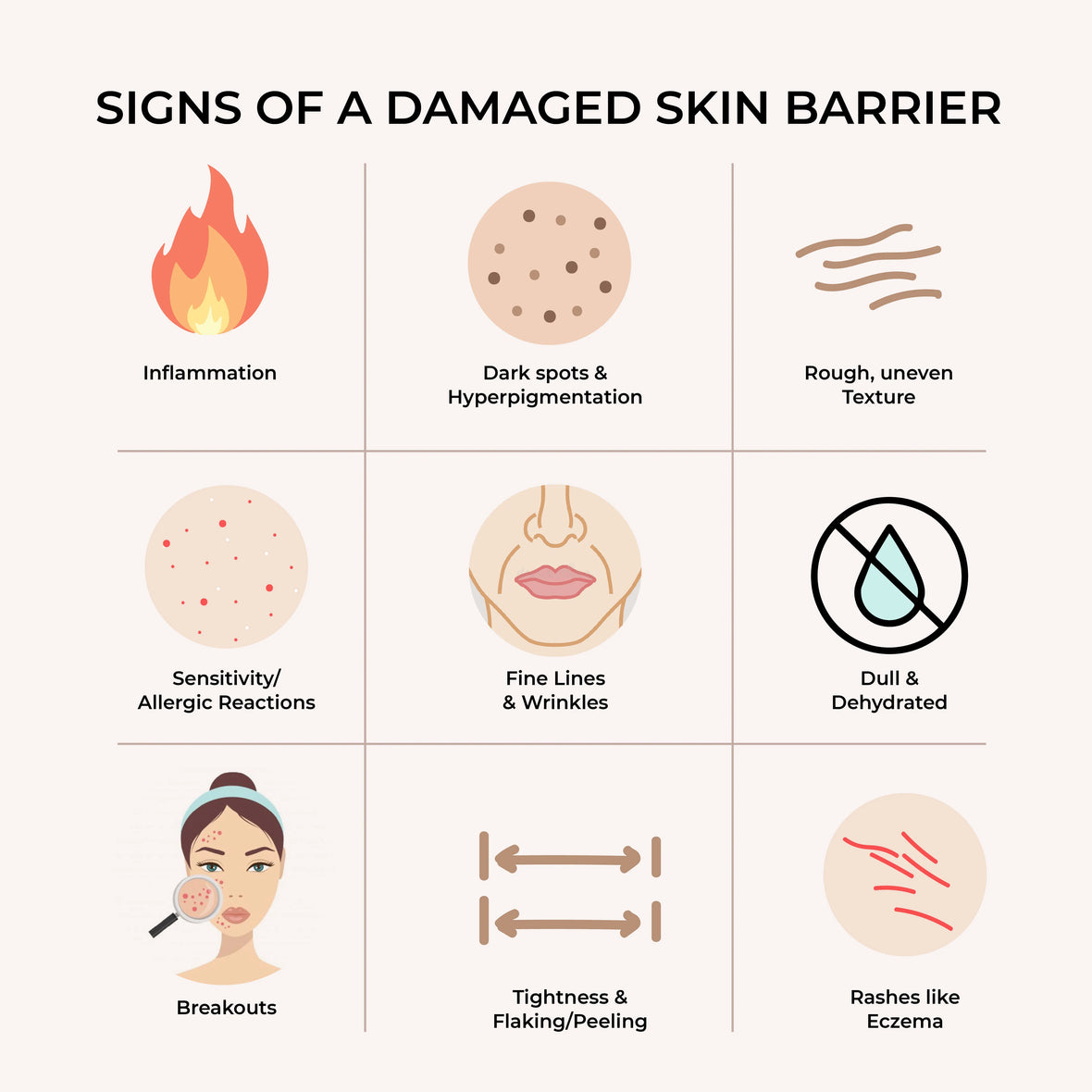
Understanding the Importance of Skin Barrier Health
Understanding the Importance of Skin Barrier Health
In the quest for flawless skin, we often focus on specific concerns like acne, wrinkles, or hyperpigmentation. However, the foundation of healthy skin lies in maintaining a strong and intact skin barrier. Understanding the importance of skin barrier health is essential for achieving and maintaining a radiant complexion. In this blog, we will explore what the skin barrier is, its functions, and how to keep it healthy.
What is the Skin Barrier?
The skin barrier, also known as the stratum corneum, is the outermost layer of the skin. It consists of tightly packed skin cells (corneocytes) held together by lipids (fats), creating a protective barrier. This barrier serves as the first line of defense against environmental aggressors, such as pollutants, bacteria, and UV radiation.
Functions of the Skin Barrier
1. Protection: The primary function of the skin barrier is to protect the body from external threats. It prevents harmful substances, such as bacteria and toxins, from penetrating the skin and causing infections or irritations.
2. Water Retention: The skin barrier plays a crucial role in maintaining hydration. It prevents water loss from the deeper layers of the skin, keeping the skin moisturized and supple. A healthy skin barrier helps retain moisture, reducing the risk of dryness and dehydration.
3. Regulation: The skin barrier regulates the absorption of substances. It allows beneficial ingredients in skincare products to penetrate the skin while blocking harmful chemicals.
4. Sensation: The skin barrier contains nerve endings that allow us to sense temperature, pressure, and pain. This sensory function helps protect us from potential injuries.
Signs of a Compromised Skin Barrier
A damaged skin barrier can lead to a range of skin issues. Common signs include:
• Dryness and Flakiness: When the skin barrier is compromised, it loses its ability to retain moisture, leading to dry and flaky skin.
• Redness and Irritation: A weakened barrier makes the skin more susceptible to irritants, resulting in redness, inflammation, and sensitivity.
• Breakouts and Infections: Without a strong barrier, bacteria and other harmful microorganisms can penetrate the skin, causing breakouts and infections.
• Tightness and Itchiness: Damaged skin barriers often lead to a feeling of tightness and itchiness, as the skin struggles to maintain its moisture balance.
How to Maintain a Healthy Skin Barrier
1. Use Gentle Cleansers: Harsh cleansers can strip the skin of its natural oils, weakening the barrier. Opt for gentle, sulfate-free cleansers that cleanse without disrupting the skin’s natural balance.
2. Moisturize Regularly: Keeping the skin well-moisturized is essential for barrier health. Look for moisturizers that contain ceramides, hyaluronic acid, and fatty acids, which help to strengthen and repair the skin barrier.
3. Avoid Over-Exfoliation: While exfoliation is important for removing dead skin cells, over-exfoliating can damage the skin barrier. Limit exfoliation to 1-2 times a week and choose gentle exfoliants.
4. Protect from UV Damage: UV radiation can weaken the skin barrier. Always wear sunscreen with an SPF of 30 or higher, and reapply every two hours when outdoors
5. Stay Hydrated: Drinking plenty of water helps maintain overall skin hydration. A well-hydrated body supports a healthy skin barrier.
6. Use Barrier Repair Products: There are specific products designed to repair and strengthen the skin barrier. Look for ingredients like niacinamide, cholesterol, and phytosphingosine.
7. Avoid Harsh Chemicals: Products containing alcohol, fragrances, and harsh preservatives can irritate and weaken the skin barrier. Opt for gentle, fragrance-free products.
Conclusion
Maintaining a healthy skin barrier is crucial for achieving and sustaining beautiful, resilient skin. By understanding its importance and taking steps to protect and strengthen it, you can prevent a variety of skin issues and enjoy a glowing complexion. Prioritize your skin barrier health by incorporating gentle skincare practices and using products that support and enhance this vital layer of your skin. If you experience persistent skin issues, consult a dermatologist for personalized advice and treatment options.


